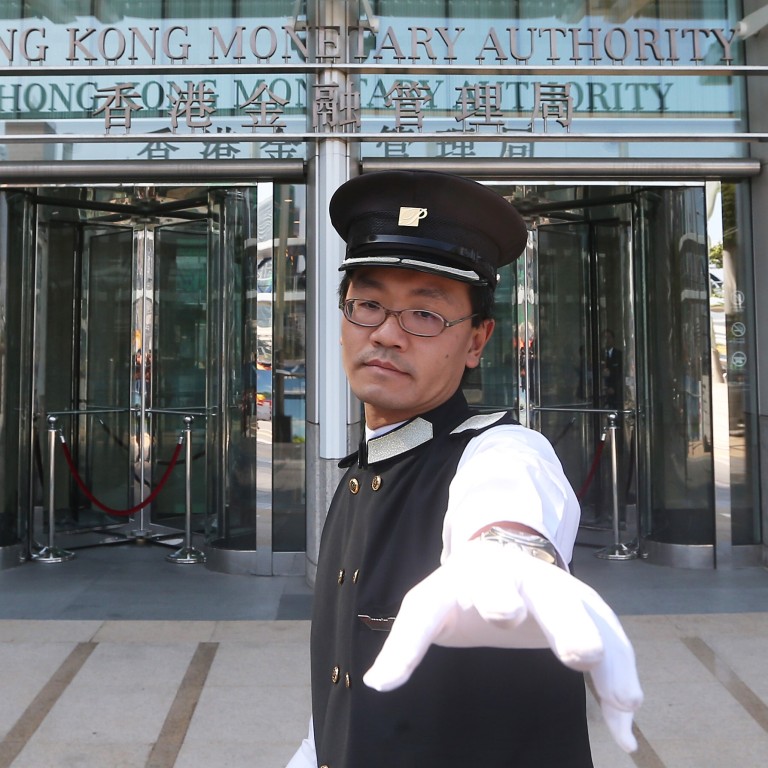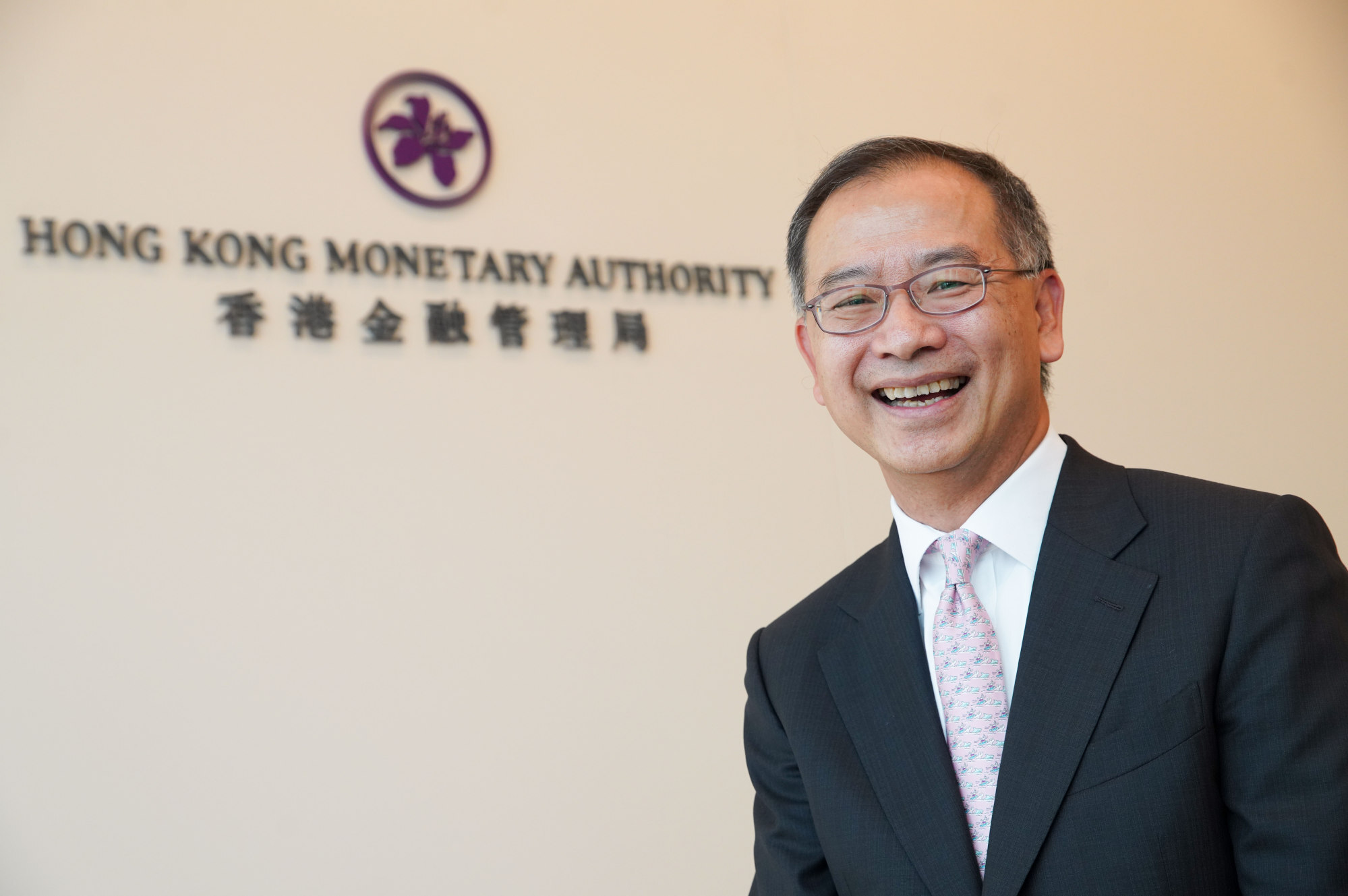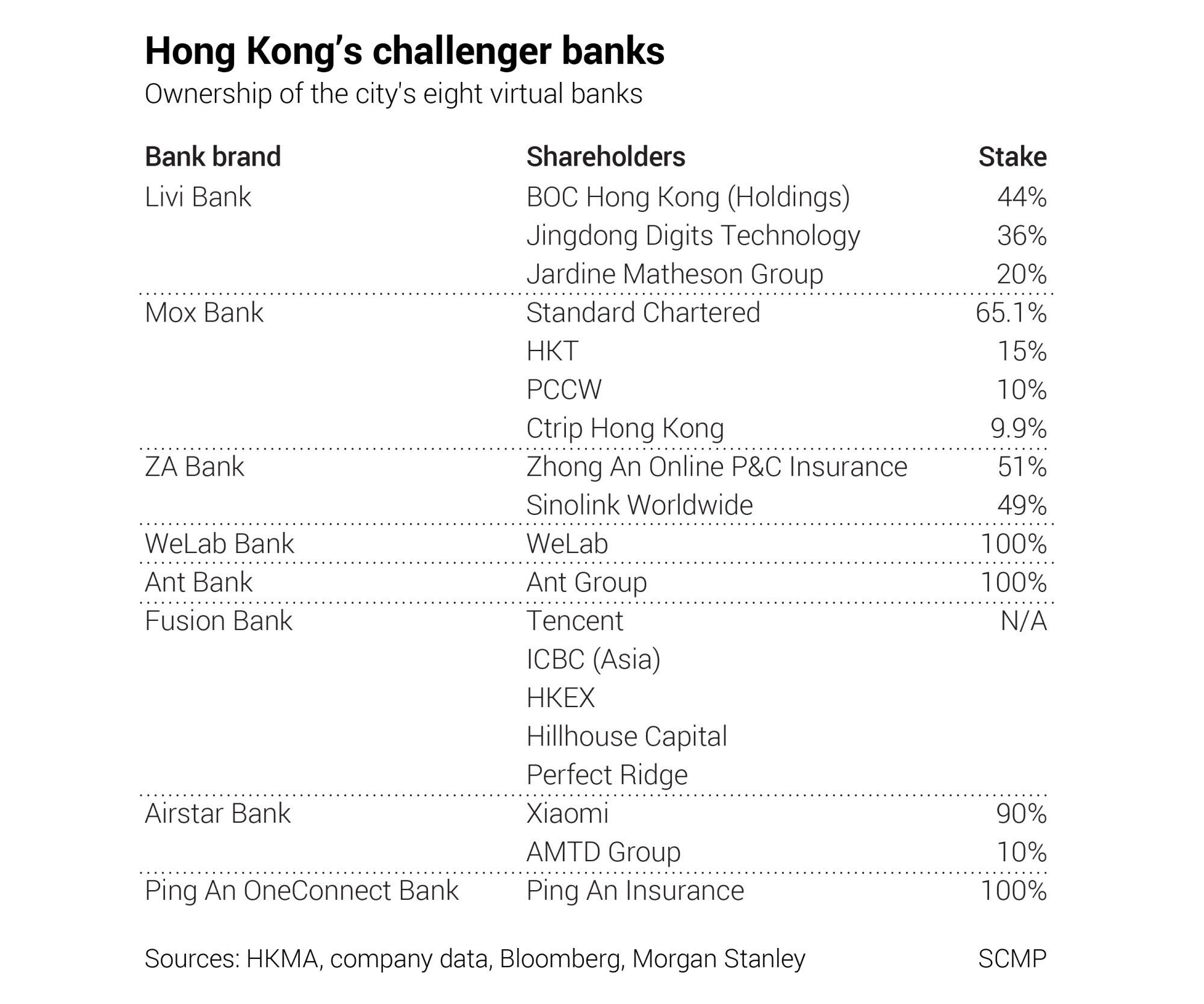
HKMA piles pressure on small lenders to digitise as Hong Kong’s virtual banks gain traction with customers
- Hong Kong’s eight virtual banks have accumulated HK$15 billion (US$1.93 billion) worth of deposits and attracted 420,000 customers since their launch last year
- Virtual banks to generate up to HK$76 billion of revenues per year by 2025, capturing a combined market share of 19.3 per year, report says
Hong Kong Monetary Authority is shifting focus from shepherding financial innovation with the launch of the eight virtual banks last year towards chivvying digital laggards among the city’s small and medium-sized lenders to shift operations online, according to the chief executive of the de facto central bank.
Hong Kong’s eight virtual banks have attracted 420,000 customers and HK$15 billion (US$1.93 billion) of deposits since becoming fully operational last year, according to chief executive Eddie Yue Wai-man who has overseen and promoted their expansion.
The authority will require incumbent lenders to report their plans to digitise to the HKMA, including timelines and goals. The HKMA staff will discuss with each bank their digital projects in the next three to five years, while it will help link lenders with start-ups to provide technological support, Yue said.
“If the small players are not doing anything, they may be left out in future,” Yue said.

HKMA has taken pride in the city’s lead in fintech over some other Asian financial hubs, which has enhanced financial inclusion.
“After Hong Kong has successfully launched the virtual banks, Singapore and Malaysia have also issued their virtual bank licenses,” Yue said in a media briefing last week.
The eight virtual banks, which do not have physical branches, may generate up to HK$76 billion per year by 2025, capturing a combined market share of 19.3 per cent, according to a report from financial consultancy firm Quinlan & Associates released on Monday.
Some virtual banks are using technology to allow individuals and small and medium-sized enterprises to take out bank loans more quickly and cheaply, Yue said.
“The virtual banks have encouraged financial inclusion as they have allowed more people, such as thousands of domestic helpers in Hong Kong, to enjoy banking and remittance services. Many of these customers were ignored by traditional lenders previously,” Yue said.
Now that the virtual banks have achieved critical mass, Yue is turning his attention to small lenders which are struggling to keep up, or wilfully ignoring, consumers growing preference to transact online.
“HKMA will work with the small and medium-sized lenders to push them using new technology to cut down cost and to provide better services. The virtual banks and biggest traditional lenders have invested a lot in fintech.

To be sure, the virtual banks are still minnows compared with the city’s giants, HSBC and Standard Chartered. Mox Bank, one of the eight virtual banks, had an average customer balance of HK$70,000, lower than HK$460,000 at HSBC. However, they are catching up fast, the report from Quinlan & Associates, the virtual banks’ average deposit balance will be equal to half that at HSBC by 2025.
To shore up their customer base in the face of this rising threat, HSBC and Standard Chartered Bank removed the minimum balance requirement and lowered some fees in August 2019.
“By imposing no minimum account balance requirements and levying no low-balance fees, virtual banks have also helped to make banking and financial services more accessible and inclusive, enhancing upward social mobility,” said Benjamin Quinlan, chief executive and managing partner of Quinlan & Associates.

